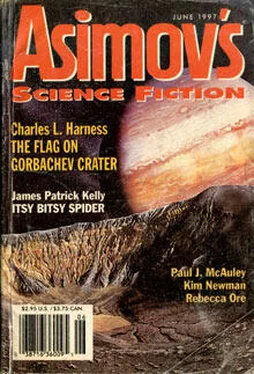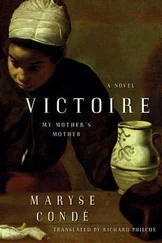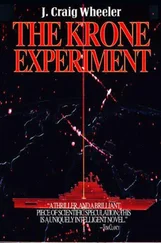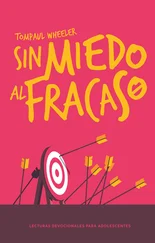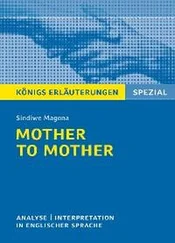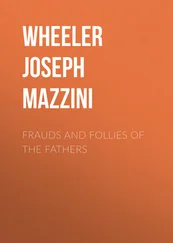Mother Africa
by Deborah Wheeler
All the long flight across the Atlantic, Willamette McCoy stared into the night, watching for the first hint of brightness in the east. When at last the Kampala runway stretched before her, a lacework of cracked cement, her heart sank. Africa didn’t look anything like the Promised Land.
The touchdown nearly jarred her teeth out of her head. From the airport, she rode with her family in an old cattle truck labeled, “Villages Reclamation Project.” The truck stank of manure, and the slatted sides were chewed and splintered. After a few minutes, Willamette’s chest went all tight and wheezy from breathing the dust-hazy air.
They waded through the city, the families assigned to each village project keeping together. There were people everywhere, people the color of her African dreams. They shuffled along the sidewalks and squatted in front of baskets of chili peppers, mango, millet, and sorghum.
The streets teemed with battered cars and trucks, hand-pulled carts, scrawny buffalo, donkeys, even a camel. Barefoot children shrieked and scampered between men bent under stalks of bananas or crates of live chickens, women with sacks balanced serenely on their heads. Willamette’s ears filled with the sound of radio music shrilling from opened doorways, horns blaring, peddlers calling out their wares. Back in Troit, there had been gunfire and sirens, too, but always on the other side of the razor-wire fences. She’d lived all her thirteen years with those sounds.
A boy not too much older than Willamette slouched on the dirt, his back to the wall of their hotel, stick-thin legs outstretched. One hand lay palm up on his lap, as if begging. Flies clustered around his eyes and the open sores on his ankles. Willamette thought he was dead until she saw the pulse in his neck.
“What’s wrong with him?” she asked Mama.
“Slim disease.”
Everything had a different name here. Willamette heard Dad say that AIDS was the reason they’d been able to sign up for a farm. The old tribal villages were gone and everyone who wasn’t sick had left for Kampala or Mbale to find work.
“Why doesn’t someone take care of him?” Willamette asked.
Mama’s mouth went tight. “He’s probably here alone, with no family.”
A man lounging beside the hotel doorway said, “All the people from the southern district are gone. Dead, or back to the quarantine areas.” The way he said it, there wasn’t much difference.
When her brother Stephen bent over to speak to the boy, there was no response. The man at the doorway spat out a wad of something green and disgusting and asked, in sing-song English, how much Stephen wanted for his sister. He didn’t mean slavery, but bride wealth, gifts from the groom to the bride’s family—so many cattle, so many vials of AZT—or at least that’s what Willamette hoped he meant. She’d studied such customs in the Reclamation Project classes.
The hotel room was a dark, stuffy, peeling cell. Out of the corner of her eye, Willamette caught bedbugs crawling across the single lumpy mattress she shared with Mama. Because Mama was afraid to let them drink the water, all they had were warm Cokes, so old they’d lost their fizz. On the other side of the wall, a baby cried fitfully.
The next morning, all the families assigned to their village crowded into the dingy hotel lobby for the ceremony that would transfer the official land-use right to them. The Reclamation Project agent said they all had to be there. Packed in between her oldest brother Joseph, who was six feet one, and a lady from Pitts who smelled of garlic and was bigger than two of Mama, Willamette couldn’t see much. The baby who’d cried all night curled on his daddy’s shoulder, snuffling and whimpering.
Three old men, bent over and scrawny in their bright-colored robes, tottered to the center of the circle. One carried a pile of battered school notebooks. These were the village registers, records of every birth, marriage, death. In voices so softly musical that Willamette could hardly hear them, the elders described the history of the village, the places to be respected. Then Dad went up with the other grown men to receive the registers. Through the press of bodies, Willamette caught a glimpse of a dark, wrinkled face, eyes lingering for a last moment on the old notebooks.
“It is good that there will be children in the village again,” the elder said.
After the ceremony, the Reclamation Project lady said everyone must be ready to leave first thing in the morning. Willamette didn’t catch all the details, but it had something to do with clan fighting in another part of the city.
“It is the same old story,” the Project lady said, “each group blaming the other for slim disease. First it was prostitutes, then truckers, then anyone from the south or the west. You are Americans, you have nothing to do with these troubles. But still, it is not safe to stay long in the city.”
Back in the room, Willamette lay on the bed beside Mama. Her mouth tasted of metal. The dust had worked its way into her lungs. She used her inhaler twice, more than she was supposed to, and it left her too jittery to sleep. She couldn’t think straight, she only knew she didn’t want to wake Mama up. The walls seemed to press in on her, smothering her.
Out in the city, she heard gunfire, but maybe she was dreaming being back in Troit. Then a big boom, like a bomb or a gasoline tank exploding. There had been plenty of those back home. She knew the sounds by heart.
Now she was really scared. She tried to call out, but she couldn’t get enough air to make a sound. She shook all over. Something hot and silvery clawed at the back of her throat.
Mama woke up. She knew something was wrong, the way she always did. She got Willamette calmed down and put a damp washcloth across her eyes. Willamette drifted back to sleep in the close hot darkness, knowing that Mama would take care of everything.
The next morning, Dad told her the news. The ruckus last night was a gunfight over by the lot where the Reclamation vehicles were parked. Some of the guards belonged to one clan, the raiders to another. The big noise was two of the crawlers being blown up. There weren’t enough left working for all the families, so they drew lots to see who would get one. One family had to wait in Kampala until theirs could be repaired. The McCoys would get a ride to Mbale, where a replacement crawler had been arranged.
Joseph got that tight look on his face when things didn’t go the way they were supposed to. Mama patted him on the arm and said this was Africa and they had to learn to think like Africans. Everything would come right in the end.
After three days of Willamette being afraid to breathe for fear of setting off another asthma attack and then sure she was going to murder that Stephen if he said another word to her and hoping she wouldn’t cry in front of Mama, who needed her to be brave and strong, they were ready to go.
The city seemed to go on forever, dirt roads and shacks and people sitting in the shade like piles of old laundry. But everyone was feeling good to be on their way again. Dad and Joseph sang songs in English and then in Swahili.
“They teach you that back home?” the Reclamation guide said. His rich brown skin gleamed in the sunlight as if it had been oiled. He held the steering wheel with one hand and his Uzi with the other.
Dad’s shoulders bunched up tight. Joseph said, “This is the land of our ancestors—”
“A blind man can see your people came from out West Africa.”
Until now, the guide had been easy and soft-spoken. Now there was an edge to his voice, as if he somehow associated Willamette’s family with the centuries-dead slave trade. She didn’t understand how people could blame each other for things that happened so long ago.
Читать дальше
